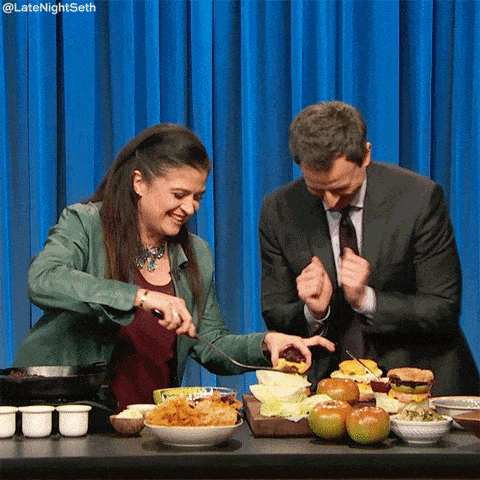
Doctor approved — and it works in 20 seconds or less…
Unsubscribe | Report as spam | Change email preferences
—-Important Message From Former FBI Physician, Dr. Leo Shub—-
This simple and safe masturbation technique gives men stiffer erections in 20 seconds

Yes, masturbating to improve your manhood!
Scientists from leading universities like Harvard, Yale, and Oxford are just now discovering this remarkable new method.
And it takes no more than 20 seconds, but can unleash potent sex drive, stamina and energy in bed…
At the same time as making erections stiffer, stronger, and wider!
How do I know?
Because I’ve seen it work for hundreds of my patients and the results have been nothing short of a miracle.
And the first person I’ve used this technique on was myself…
———-
This 1 fruit can help men manage blood sugar
People often think that sugar is the cause of blood sugar spikes – but it’s really not that simple.
It’s true that blood sugar can be spiked by one type of sugar – glucose.
But the major carbohydrate trigger for blood sugar spikes is starch.
Starch is made up of long chains of glucose.
Other sugars, particularly the fruit sugar fructose, actually help to lower blood sugar.
Researchers found that eating apples before eating starch leads to smaller increases in blood sugar in people with and without impaired glucose tolerance.

The human research was carried out at Josai University in Saitama, Japan. The paper was published in Foods.
The researchers were interested in the effects of apples and starch on blood sugar and insulin levels in people with blood sugar problems.
“We investigated the effect of apple consumption on postprandial blood glucose and insulin levels in subjects with normal versus impaired glucose tolerance.”
The researchers recruited 19 people for their experiment. About half of the people had problems managing blood sugar after a meal.
“The participants were ten healthy subjects with no glucose intolerance and nine subjects with impaired glucose tolerance, including 2 on insulin therapy.”
The test meals included about 5 ounces of white rice and about 5 ounces of apples.
The carbohydrates in white rice are almost entirely starch, while apples contain glucose, fructose and sucrose.
“The test meal included white rice (148 g) and a Fuji apple (150 g).”
The researchers compared the effects of eating the 2 foods in different sequences. Apples first versus rice first.
“The normal subjects were randomly divided into two groups: the apple-first group, wherein the subjects consumed white rice 5 min after consuming the apple.”
The participants took a 5 minute break in between eating the 2 foods.
The researchers took blood samples over the next 3 hours to look at blood sugar and insulin levels.
Blood sugar was 17% lower in healthy people when they consumed apples first.
Insulin was 21% lower in that same group when the foods are eaten in that sequence.
“In the normal subjects, the peak serum level of blood glucose and insulin levels were 54 and 62 vs 46 and 49 in the rice-first and apple-first groups, respectively.”
Most importantly, peak blood sugar levels were 16% lower in the group with blood sugar problems when they consumed apples first.
“In the impaired glucose tolerance subjects, the peak serum level of blood glucose was 75 in the apple-first group compared to 90.0 in the rice-first group, which was a significant difference.”
The average blood sugar levels over the 3-hour period after the meal…
…were also significantly lower in the apple-first group of people who had impaired blood sugar tolerance.
“Eating an apple before a meal may be a simple and effective strategy for managing the glycaemic response in individuals with impaired glucose tolerance.”
I have written in my newsletters before about how fructose, a fruit sugar, helps to blunt the increase in blood sugar caused by glucose and particularly starch.
The experiments showed that taking fructose before a starchy meal leads to lower blood sugar.
I believe that the results of this experiment are due to the fructose contained in the apples, as well as the healthy apple fiber.
If you’re going to eat a starchy meal, it’s a good idea to eat some fruit or have some fruit juice beforehand.
—-Important Message—-
Eat a couple of these 10 superfoods for perfect blood sugar

Why do these 10 superfoods work?
Because they kick start the cells in a man’s body into using sugar for energy, so it doesn’t pile up in the bloodstream.
And when the cells begin burning sugar again, blood sugar DROPS and diabetes is no more.
Once again, just as you could when you were a kid, you can eat virtually anything and enjoy the heck out of it…
…because no more diabetes symptoms!

Your doctor will say, “I don’t know what you are doing, but whatever it is, keep doing it!”
And you’ll be able to stop your medications with your doctor’s full blessing because you won’t need them anymore!
Here are the 10 superfoods for waking up every day with perfect blood sugar
Hint: morning wood happens routinely now!
———-

